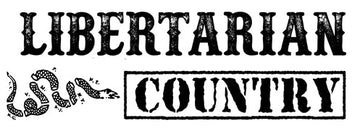There was a time when “freedom” was a universally celebrated word.
It rolled off the tongues of rebels and presidents alike—spoken in the smoky taverns of Boston and the bloodied fields of Lexington, scrawled into parchment and hammered into the shape of a republic.
It was a word that could launch ships, arm militias, and ignite revolutions. Now, say it too loudly at a faculty cocktail hour and you might be met with furrowed brows and polite distancing.
So the question arises: When did “freedom” become controversial?
The answer isn’t a single date on a calendar. It’s a slow cultural rot. A shifting of definitions. A soft forgetting. Like erosion—almost imperceptible, until one day you realize the cliff’s edge is gone, and with it, your footing.
Once upon a time, “freedom” meant liberty from tyranny—personal autonomy, voluntary association, private property, self-determination.
Now, in many circles, it’s muttered with irony. Cast as a dog whistle for reactionaries, a quaint relic for rural eccentrics, or worse, a mask for privilege. Somewhere along the way, the universal good became a niche belief. A punchline.
You’ll hear it in the condescension: “Oh, he’s one of those freedom people.”
One of those. As if wanting to make decisions about your own body, your own property, your own beliefs, is akin to fringe extremism. As if liberty is dangerous unless centrally curated by experts with shiny badges and government pensions.
But let’s not mince words. We're all to blame. The left had its role in killing freedom and the right had its role, too.
But what really killed freedom?
Freedom has been killed by comfort.
A population numbed by ease will trade rights for promises. Give them an app that delivers burritos in ten minutes and they’ll let you listen to every phone call they make. Offer them a subsidized lifestyle and they’ll chain themselves to the state with a smile. Tyranny isn’t always ushered in by jackboots—it arrives through soft pillows, touchscreen dopamine, and subsidized complacency.
Freedom began to die when dependence became a virtue.
The welfare state, the surveillance state, the bureaucratic state—these weren’t accidents. They were marketed as “safety,” “equity,” “progress.” The state no longer offers protection from tyranny—it offers protection from life. And when life is padded and swaddled and centrally managed, freedom begins to look messy. Dangerous, even.
Because true freedom includes the right to fail. To offend. To live foolishly. To reject the collective consensus. To be broke, unpopular, unvaccinated, unsupervised, or unapproved. In a sanitized culture, those options look barbaric.
When did “freedom” become controversial?
Maybe it was when the Constitution started being treated like a quaint suggestion rather than a binding contract. Maybe it was when speech became “violence” and censorship became “safety.” Maybe it was when a man could be publicly punished for refusing to bake a cake. Or when a woman’s right to protect herself with a firearm was considered more dangerous than the man stalking her.
✖ Ready to Make a Statement?
If this fires you up, don’t just nod along—wear it. Our unapologetically libertarian apparel is more than fashion—it’s resistance stitched in cotton.
👉 Shop Libertarian Country and let the world know you still believe in liberty.
Maybe it was when drones started hovering over the Middle East and no one blinked. When whistleblowers were branded traitors. When internal memos at tech companies began to read like federal policy drafts. Or maybe it was when children were taught that freedom was selfish and obedience was compassion.
The reality is, “freedom” became controversial the moment we stopped demanding it.
You see, the word “freedom” is threatening to those who thrive in hierarchy. It undermines the very foundation of control.
The expert class, the credentialed elite, the technocratic overlords in training—they all share a common allergy to individual autonomy. Because when people are truly free, they don’t need managing. They don’t need to be “nudged,” “re-educated,” or “monitored for misinformation.” They just live. And that terrifies bureaucrats.
The new regime doesn’t come bearing chains. It comes with policies. Forms. Updates to the terms of service. And each one chips away at your options until you’re left with a life that looks safe, equitable, and regulated—but feels hollow.
The most insidious part? This transformation has been disguised as progress.
What used to be celebrated—rebellion, skepticism, independence—is now pathologized. “Why won’t you just comply?” has become the motto of the modern age. And many do, not because they’re cowards, but because they’re exhausted. The fight for freedom is tiring. Bureaucracy is relentless. And liberty, for all its romance, is a burden.
But it’s a burden worth bearing.
The man who values freedom must be willing to be misunderstood. Laughed at. Punished. Because today, defending freedom makes you a dissenter. A crank. A radical. And in some twisted way, that means we’re doing something right.
If they’re comfortable with your version of freedom, it probably isn’t freedom.
So here’s the heresy: We still believe in liberty. We believe in the wild, rugged, voluntary kind of liberty—not the plastic, focus-grouped simulation offered by state-approved programming. We believe in owning your words, your guns, your failures, and your future.
And if that’s controversial, good. Let it be.
Let “freedom” once again become the banner carried by the rebels, the dissenters, the ones who say no when everyone else nods yes. Because freedom isn’t fragile. It’s ferocious. And it doesn’t need permission.
So to the question—when did freedom become controversial?
Answer: When too many people forgot what it costs.
But we remember.
And we’re not done fighting.
Want to wear your rebellion?
Check out the best-selling gear from Libertarian Country and show the world that freedom is worth fighting for—no matter how controversial they say it is.



